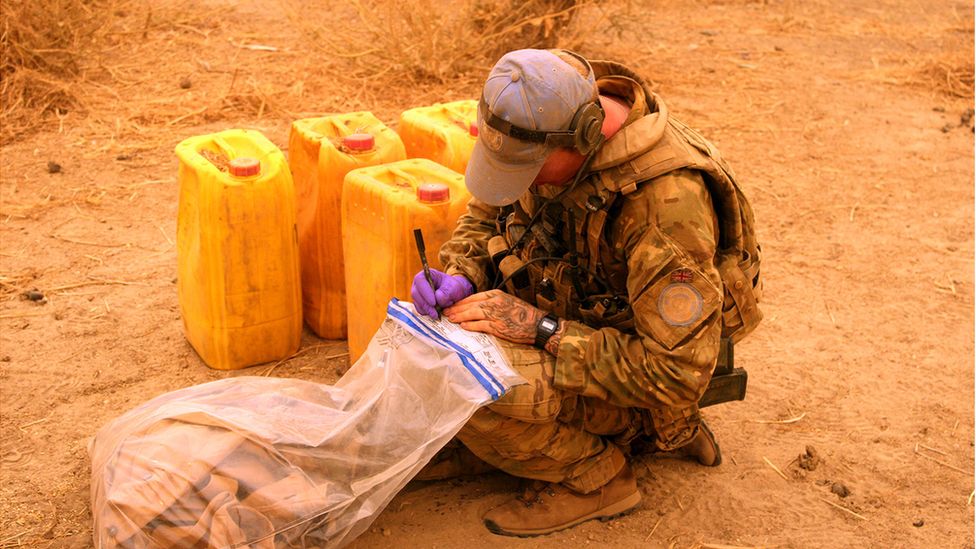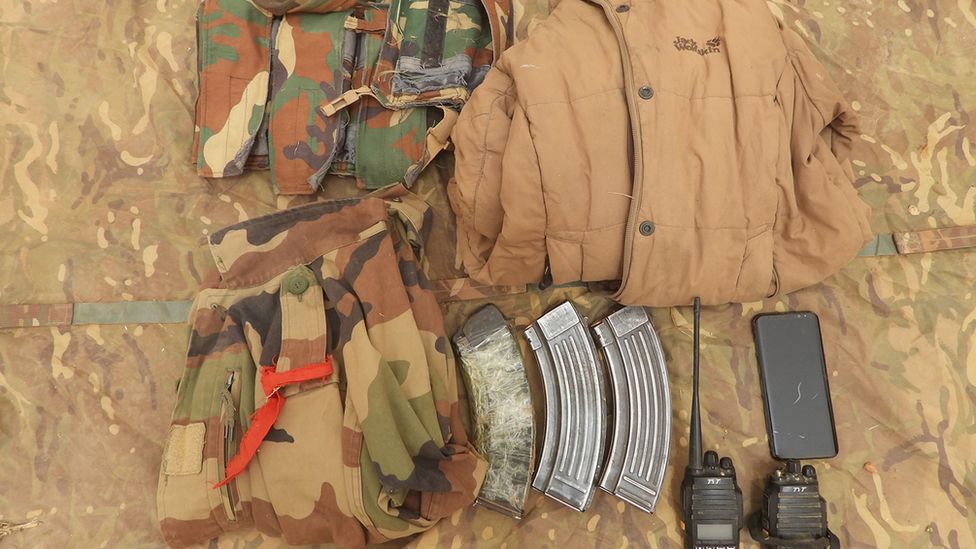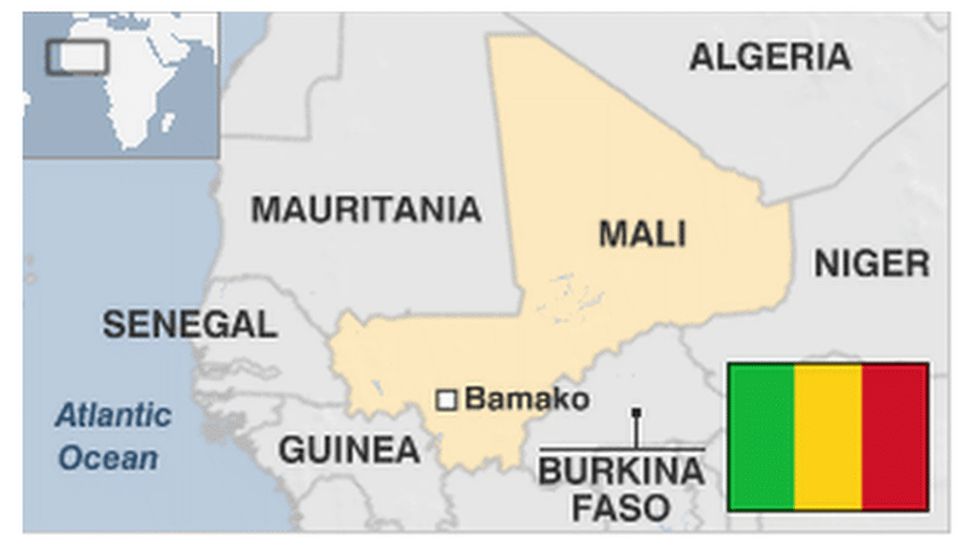AK47 rifles and hundreds of rounds of ammunition are among a cache of suspected Islamic State weapons that have been seized by UK troops in Mali.
Around 100 soldiers took part in efforts to retrieve the weapons in a village close to the border with Niger, where the Ministry of Defence said locals were being threatened.
Suspected IS members had earlier fled by swimming across a river, it added.
The operation was carried out in a sandstorm and temperatures above 50C.

Soldiers also seized camouflage clothing, radios, mobile phones and hundreds of litres of fuel after being cleared by the United Nations to search buildings.
They are part of a UK task force that arrived in the West African country in December to assist with a broader UN peacekeeping mission.
The task force conducts long-range reconnaissance patrols to protect the local population from a rising tide of violent Islamist extremism.
The operation in the village, close to the border with Niger, involved soldiers from the the Light Dragoons and Royal Anglian Regiment, supported by a specialist Royal Engineer search team.


Lt Col Tom Robinson, Commanding Officer of the Light Dragoons, said they had acted on intelligence gathered during patrols.
“We focused on where terrorist groups were intimidating local people and were then able to find and seize the weapons and supplies, disrupting their harmful influence on local communities and gathering more information that will help interrupt further extremist activity,” he said.

The MoD said it was the first targeted “cordon and search” operation carried out in this way by UN forces in Mali.
A cell of suspected IS fighters fled by swimming across the River Niger, it added – leaving behind the weapons and equipment, which have been passed on to the UN and Malian authorities.
The UN Mission in Mali is made up of more than 14,000 peacekeepers from 56 different countries.
It has been described as the most dangerous peacekeeping mission in the world.
Almost 250 UN soldiers have lost their lives there since 2013.